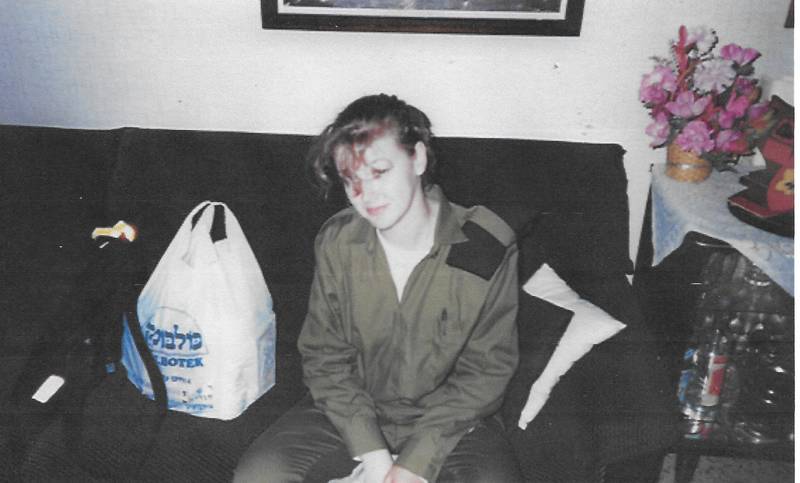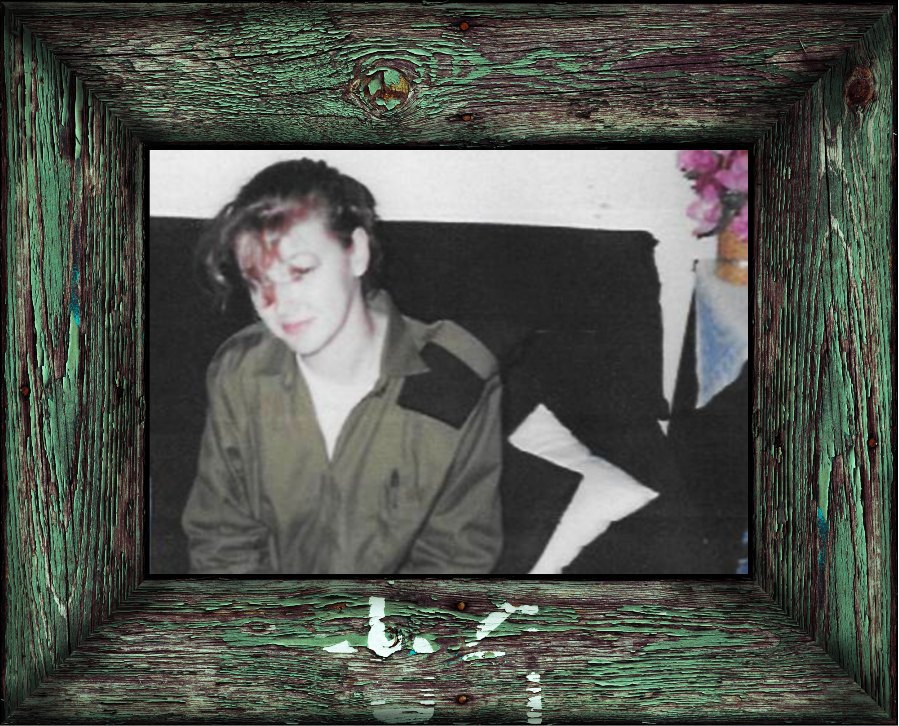Aaron Leibel, on having a daughter in the Israel Defense Forces
In an earlier post, I wrote about daughter number one Lauren’s service in the IDF. Debra, daughter number two, also did her army service, but it was much more complicated.
She had returned to America with Bonnie, her sister Abby and me when she was 16, at the end of her sophomore year in high school. She had no legal obligation to return to be drafted, because she hadn’t received her first in a series of call-up orders from the army before we left the country.
But Debra says she never had any doubt that she would go back to do her service. It wasn’t patriotism, she says. Rather, being in the IDF was part of life in Israel. All her friends and acquaintances would do it, and she knew she would join them.
For some reason, by going to summer school the year we arrived and the following year completing the 11th grade — she and her sister, Abby, spent that first year as students at the Charles E. Smith Jewish Day School in Rockville, Md. — she would have enough credits to graduate without going to the 12th grade.
So she graduated a year early and spent what should have been her 12th-grade year at Montgomery College. The 30 credits she earned were considered the equivalent of having passed the bagrut exams — a series of grueling tests that Israeli youngsters need to pass to be admitted to university.
She returned to Israel in July and worked as a waitress in the cafeteria in the Knesset (the Israeli parliament), waiting to be called up. She was supposed to be drafted in September. But the army had not finalized her physical profile by that fall, and so her induction was postponed to February. That was very fortunate because had she gone in in September, she wouldn’t have met Nadav — one of her instructors in a course she took, who later became her husband.
Female soldiers then did three weeks of basic training, but after 10 days, she and other trainees left for a three-month-long course in Intelligence.
At the completion of the course, she was assigned to a base in the Negev for the remainder of her time in the IDF. Her job required a good knowledge of English. That’s all she will allow me to say. (Lauren also was in Intelligence, stationed at the main IDF facility in Tel Aviv. After more than 30 years, she still refuses to tell me what she did.)

Prior to her induction, Debra lived in our apartment in Jerusalem with Lauren and her boyfriend Dror, soon to become Lauren’s husband. After she met Nadav, Debra spent most of her leave from the army at his parents’ house.
She was classified as a hayelet bodida, a lone soldier, someone serving without his or her parents living in the country.
The army provided those soldiers some extra benefits to try to compensate for the absence of their loved ones. For example, Debra got a free but time-limited telephone call to her parents once a month. While taking her course, she and her fellow soldiers got to go home every Friday and Saturday. She was permitted to leave the base two hours before the others — the rationale being that she would have to do shopping for herself for Shabbat. Because the other soldiers would return to the base with baskets of food from their doting parents, she was allowed, as compensation, the privilege of having a toaster in her room.
The more substantive benefits included a salary that was almost twice as large as her fellow soldiers. However, she notes, the sum of money was nonetheless very small, inadequate for paying for housing had she been forced to do that.
She also received three weeks a year to visit us. The first year, we came to Israel for Lauren’s wedding and the visit was in the Jewish state. The second year, Debra came to our house. (This extra three weeks vacation had a downside. She was told that would have been named a mifakedet [literally, commander, but maybe better translated as team leader] in her unit were it not for those extra three weeks off.)
All in all, Debra’s very glad she served in the IDF. Not only did she meet her husband, but those years put her on the path to her current life.
^^^
Veteran journalist Aaron Leibel writes for The Jerusalem Post and Washington Jewish week. He is the author of the acclaimed memoir, Figs and Alligators: An American Immigrant’s Life in Israel in the 1970s and 1980s, available from Amazon in Kindle and paperback, Barnes and Noble, and at every local bookstore in the U.S. and Canada.



